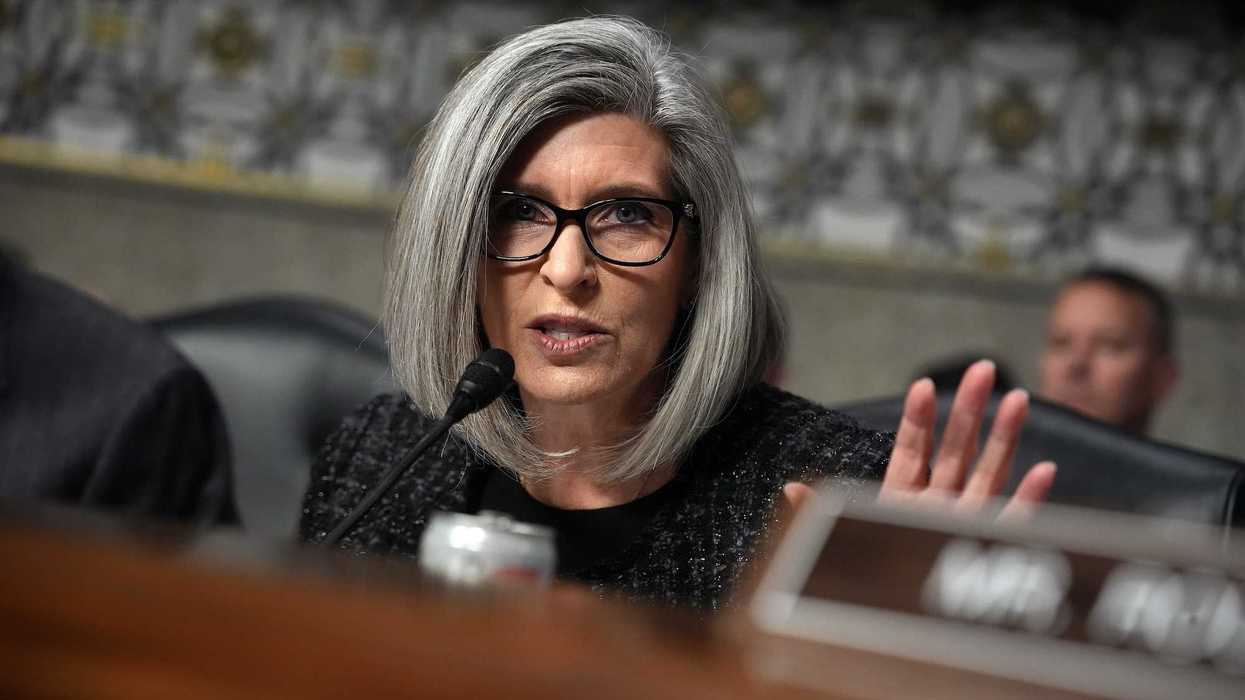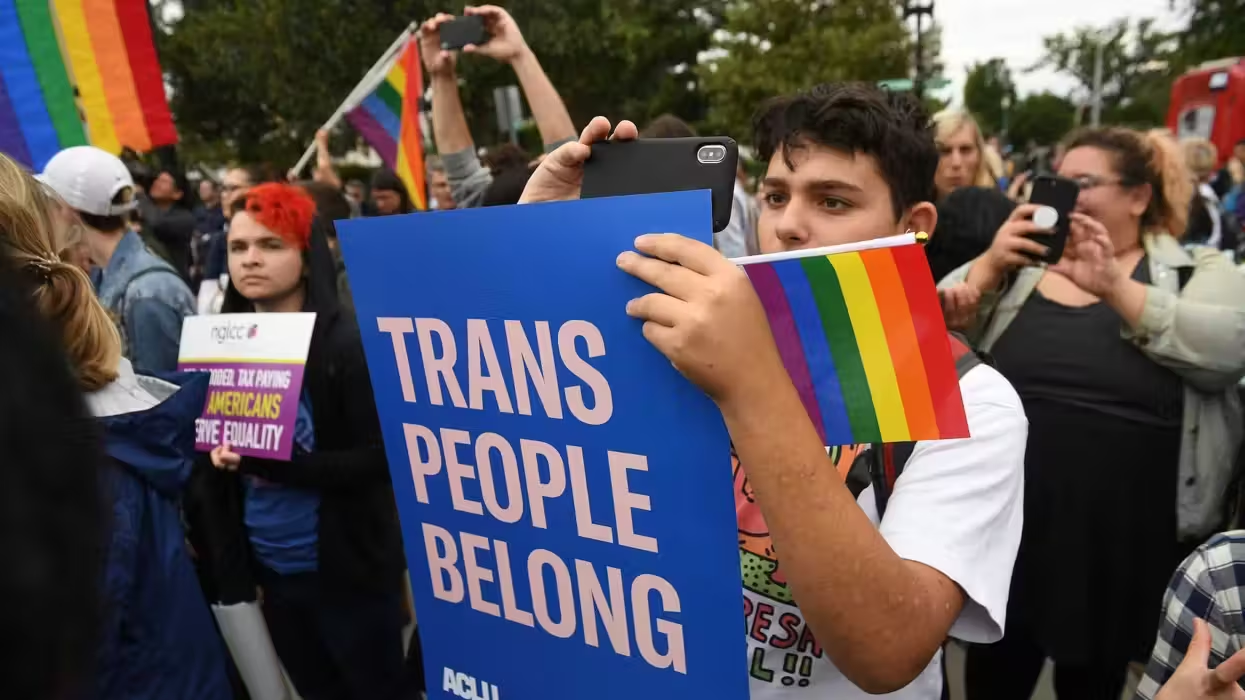
© 2026 Blaze Media LLC. All rights reserved.
Dem Rep. Pete Stark Praises Atheists' 'National Day of Reason' on House Floor
April 30, 2012
"The National Day of Prayer excludes millions of Americans who choose not to pray..."
If you're an outspoken atheist, winning an election on the national level is an uphill battle. Perhaps the prime evidence of this charge can be observed by looking at Congress, where there is only one vocal atheist: Rep. Pete Stark (D-CA). The American people, as polls have consistently shown, have an overall mistrust for non-believers and generally like their politicians to tout an adherence to the Almighty.
While, as famed scientist Richard Dawkins noted a few months back, there may be other non-believing elected officials, Stark is the only individual willing to admit that he doesn't embrace the existence of a higher power. The congressman is so outspoken that he issued a proclamation in the U.S. House of Representatives on Friday that officially recognized what he and his compatriots call the "National Day of Reason."
Additionally, he delivered the following address at the Reason Rally, an event that was widely dubbed an "atheist Woodstock," back in March:
Stark's support for the Day of Reason will help to spread the non-belief and "reason" that the initiative has been attempting to disseminate since its inception in 2003. The event, clearly derived from and a play on the annual "National Day of Prayer," is certainly one that will be fully embraced by atheist and secularist communities.
In fact, it is the American Humanist Association, a group that advocates for "progressive values" for non-believers, that originally created the National Day of Reason. But with the growth of the atheist movement and the increased influence that secularists are having on society, the initiative is finally picking up steam (Stark's endorsement certainly helps this growth).

And here's the kicker: Atheists have chosen Thursday, May 3, to serve as the official National Day of Reason. This is the same day that religious communities across America will be celebrating the aforementioned day of prayer. So, very clearly, the day was chosen, with reason (pun intended), to serve as an alternative to the Judeo-Christian-led festivities.
Here is a portion of the proclamation that Stark delivered on the House Floor last week:
The National Day of Reason celebrates the application of reason and the positive impact it has had on humanity. It is also an opportunity to reaffirm the Constitutional separation of religion and government. [...]Our nation faces many problems—bringing our troops home from Afghanistan, creating jobs, educating our children, and protecting our safety net from irresponsible cuts. We will solve these issues through the application of reason. We must also protect women’s reproductive choices, the integrity of scientific research, and our public education system from those who would hide behind religious dogma to undermine them.
Finally, the National Day of Reason is about taking time to improve our communities. Every year, events are held on this day that demonstrate the desire of secular Americans to help their fellow citizens and our nation as a whole. Community service events, such as food drives and blood drives, are just some of the ways that people will be working to help those in need on the Day of Reason and throughout the year.

On Monday, the AHA released a statement praising these comments and further advertising their National Day of Reason.
"Reason should be the guiding force for public policy," proclaimed Roy Speckhardt, the executive director of the AHA. "The National Day of Prayer excludes millions of Americans who choose not to pray or prefer keeping prayer private. Reason is something that everyone can celebrate."
The Secular Coalition for America's communications manager, Lauren Anderson Youngblood, mirrored these same sentiments.
"Our founders recognized that the best guarantee of freedom for all was a separation of religion and government," she said. "The National Day of Reason reminds us of the continued importance of our nation’s founding principles and offers an alternative to the government-sponsored theism that the National Day of Prayer represents.”

Of course, Christians, Jews, Muslims, Hindus, Buddhists, and atheists, among others, would all, generally speaking, have different definitions regarding what, exactly, "reason" means.
The main premise of the event, it seems, isn't just the celebration of this ambiguous tenet. The AHA is looking to showcase the reasons it opposes the Day of Prayer and it has provided the following list of grievances on the initiative's web site:
- The National Day of Prayer violates the First Amendment of the US Constitution because it asks federal and local government entities to set aside tax dollar supported time and space to engage in religious ceremonies. This results in unconstitutional governmental support of religion over no religion.
- Lead by fundamentalist Christian Shirley Dobson, the National Day of Prayer Task Force promoted thousands of events specifically in accordance with its Judeo-Christian beliefs and focused on a small segment of the Protestant Christianity. Since they hold their events on the government sponsored National Day of Prayer, government officials of all levels participate in these events as if they were government endorsed.
- The Supreme Court has made it clear (and most Americans agree) that state sponsored prayer in school is inappropriately exclusionary. Why is a nationally sponsored day of prayer any more inclusive? This national effort geared toward a small slice of the religious spectrum is clearly outside the boundaries of proper governmental reach.
- The National Day of Prayer makes those who don’t pray feel like second-class citizens. Why set aside a national day that needlessly excludes?
- Religious Americans who wish to pray don’t need to be reminded by government to do so, so there’s no reason to limit prayer to a single day for those who chose to practice their chosen faith in that way. Government has no business saying when or what Americans should do when and if they engage in religious practice.
- Government also violates the First Amendment with the National Day of Prayer by acting to promote a certain manifestation of religion. It emphasizes only one form of religious practice, and therefore discriminates against the many others, including alms giving, social justice, fasting, peace activism and meditation.
- Many traditional religious groups encourage adherents not to make their prayer public, so this state sponsored public display of prayer is a direct affront to such teachings and disrespects countless religious Americans. Many Americans faithfully follow the words from the Sermon on the Mount, “When you pray don’t do it loudly in the synagogue or on street corners so that everyone can see you and think you are really good and holy.”
- Whenever government involves itself in religious practice as is done with the National Day of Prayer it taints that religious practice by reducing the co-opted religion’s effectiveness to protest government action, and also (in an infeasible effort to broaden the practice’s appeal) government inappropriately dilutes the messages of faithful adherents.
- Freedom of expression and worship, including the opportunity to pray or not pray as we wish, are already present without government endorsement. There is no need to set-aside a public day for prayer.
So, it seems the Day of Prayer has a companion, albiet an unwelcome one (at least among religious adherents).
Want to leave a tip?
We answer to you. Help keep our content free of advertisers and big tech censorship by leaving a tip today.
Want to join the conversation?
Already a subscriber?
Billy Hallowell is a digital TV host and interviewer for Faithwire and CBN News and the co-host of CBN’s "Quick Start Podcast."
Billy Hallowell
Billy Hallowell is a digital TV host and interviewer for Faithwire and CBN News and the co-host of CBN’s "Quick Start Podcast."
more stories
Sign up for the Blaze newsletter
By signing up, you agree to our Privacy Policy and Terms of Use, and agree to receive content that may sometimes include advertisements. You may opt out at any time.
Related Content
© 2026 Blaze Media LLC. All rights reserved.
Get the stories that matter most delivered directly to your inbox.
By signing up, you agree to our Privacy Policy and Terms of Use, and agree to receive content that may sometimes include advertisements. You may opt out at any time.






